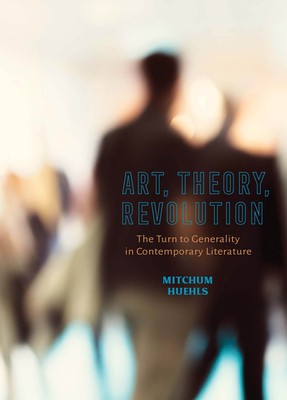
- We will send in 10–14 business days.
- Author: Mitchum Huehls
- Publisher: Ohio State University Press
- ISBN-10: 0814258468
- ISBN-13: 9780814258460
- Format: 15.2 x 22.9 x 1.1 cm, minkšti viršeliai
- Language: English
- SAVE -10% with code: EXTRA
Reviews
Description
Can form be political? Do specific aesthetic and literary forms necessarily point us toward a progressive or reactionary politics? Artists, authors, and critics like to imagine so, but what happens when they lose control of the politics of their forms? In Art, Theory, Revolution: The Turn to Generality in Contemporary Literature, Mitchum Huehls argues that art's interest in revolution did not end with the twentieth century, as some critics would have it, but rather that the relationship between literary forms and politics has been severed, resulting in a twenty-first century investment in forms of generality such as genre, gesture, constructivism, and abstraction. Focusing on three particular domains (art, theory, and revolution) in which the relationship between form and politics has collapsed, Huehls shows how twenty-first-century US fiction writers such as Chris Kraus, Percival Everett, Jonathan Safran Foer, Rachel Kushner, Salvador Plascencia, and Sheila Heti are turning to forms of generality that lead us toward a more modest, ad hoc, context-dependent way to think about the politics of form. The result is the first major study of generality in literature.
EXTRA 10 % discount with code: EXTRA
The promotion ends in 21d.18:20:08
The discount code is valid when purchasing from 10 €. Discounts do not stack.
- Author: Mitchum Huehls
- Publisher: Ohio State University Press
- ISBN-10: 0814258468
- ISBN-13: 9780814258460
- Format: 15.2 x 22.9 x 1.1 cm, minkšti viršeliai
- Language: English English
Can form be political? Do specific aesthetic and literary forms necessarily point us toward a progressive or reactionary politics? Artists, authors, and critics like to imagine so, but what happens when they lose control of the politics of their forms? In Art, Theory, Revolution: The Turn to Generality in Contemporary Literature, Mitchum Huehls argues that art's interest in revolution did not end with the twentieth century, as some critics would have it, but rather that the relationship between literary forms and politics has been severed, resulting in a twenty-first century investment in forms of generality such as genre, gesture, constructivism, and abstraction. Focusing on three particular domains (art, theory, and revolution) in which the relationship between form and politics has collapsed, Huehls shows how twenty-first-century US fiction writers such as Chris Kraus, Percival Everett, Jonathan Safran Foer, Rachel Kushner, Salvador Plascencia, and Sheila Heti are turning to forms of generality that lead us toward a more modest, ad hoc, context-dependent way to think about the politics of form. The result is the first major study of generality in literature.


Reviews